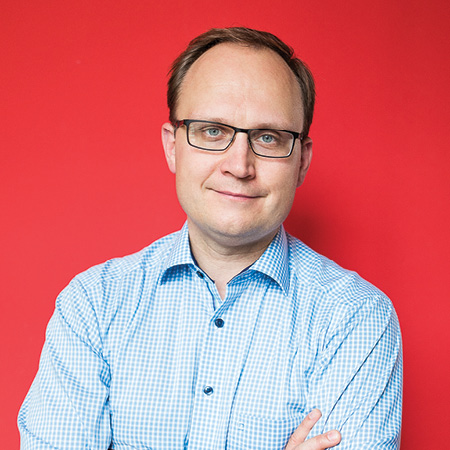In the early 2000s, Dr. Klein & Co. merged with Europace to become Hypoport — a cutting-edge, technology-based financial services company. Since then it has experienced much change and growth, mostly via organic means. CEO Ronald Slabke says its evolution has predominantly occurred in seven-year cycles.
“In the beginning we were in the start-up phase, growing the company up to 300 people and €36 million in revenue,” he explains. “Then from 2006 we hit tough times. There was the global financial crisis, the Euro crisis, the banking crisis, and the insurance crisis; and we had a tough environment to operate in. We faced lots of different challenges. We had to close down some of our businesses that were not profitable and we had to limit the speed of our growth. It was challenging to increase profits, or even to keep profits stable at that stage.
Growing business models in new directions within a healthy market
“Since the beginning of 2014, we’ve been going through a scaling and expanding phase again. The business is healthy, the market around us is healthy, and we can grow the business models in new directions. In our short life as a company — seventeen years — we have already been through several different environments and we were able to develop throughout all of them.”
This ability to adapt and grow, even when external circumstances are unfavourable, has been a big highlight for Ronald, and something he has been proud of throughout his time leading the company. He has been there since day one and believes Hypoport has managed to come out stronger than ever largely because of this willingness to move with the times and to learn quickly. Today, IT has to be at the forefront of operations for all companies in the financial services space and this is something Hypoport has prioritised. In fact, Ronald says it excels at it.
Technology focused
“We put IT in the centre of our company and we combine that with a culture of trust. We allow people to act on their own behalf and to take full responsibility of what is going on with their own businesses when they choose to use us for their financial needs. This is unique in the industry. Traditional banks and insurance companies see IT as something that needs to be done but they don’t put it right at the centre of their operations. It is more of a commodity. Trust in people is also often forfeited in banks and insurance companies. This is the opposite of the culture we have here.”
Hypoport’s current technology focus is on collecting product information in the financial industry. It has been doing this for a long time in the mortgage business, for a shorter time in the personal loan business, and more recently in the insurance business. Based on the information it is able to collect, combined with the right software service solutions, it is able to integrate market professionals with brokers on one side, and product providers on the other side.
“Customers can compare that data online and search for the right product,” Ronald explains. “This is making it possible to be more efficient and to be working better with other companies via the internet. Thanks to mobile devices the consumer is always online, so we are able to integrate the consumer in the whole process, much better than ever before.”
‘Run your bank like a modern IT company is run’
Ronald says that banking in Germany will dramatically change in the short-term, because of this ever-growing emphasis on technology. He adds that Hypoport will play a big role in that. “Most of the banks still don’t understand that what they are doing is actually an IT business. Most are still running their branches in villages and selling products in the store but this is not where the future of banking lies. The future of banking is in pure IT because consumers will eventually do everything themselves on their own devices. You need to understand that as a bank, you are in fact an IT company and you need to run your bank like a modern IT company is run.”
With this in mind, Ronald’s priorities for the next twelve-to-eighteen months are threefold. Firstly, he will keep scaling the current business. “This means we want to be the central advisor for consumers and the professional landlords, guiding them on how to finance housing in Germany. We have a huge housing shortage right now in the country; there needs to be 1 million apartments built and we want to be the company who supports the financial process of building those.”
Secondly, he wants Hypoport to deliver software solutions that manage mortgages and personal loans, as well as serve the needs of the broker sector and the big private banks. “We want to be setting the pace for others in the industry,” he notes. Finally, he would like to build a solid platform for the insurance business. “That’s a big focus right now and we will use our core competencies to achieve that.”
Having said this, Ronald explains that the company won’t be able to achieve all of these goals without overcoming some industry challenges. “There will be a lot of closures of smaller regional banks and lots of mergers ahead, because in Germany no bank can scale at the moment. Even the big banks will have to merge if they don’t embrace new technologies. This will change our industry completely. Regulation is also currently adding constant pressure on all financial institutions. The institutions that will succeed are the ones that will most efficiently handle these regulatory issues, and the ones that won’t allow themselves to be threatened by them. Regulation is a big threat for the banking industry and those that handle it best will stay alive.”



